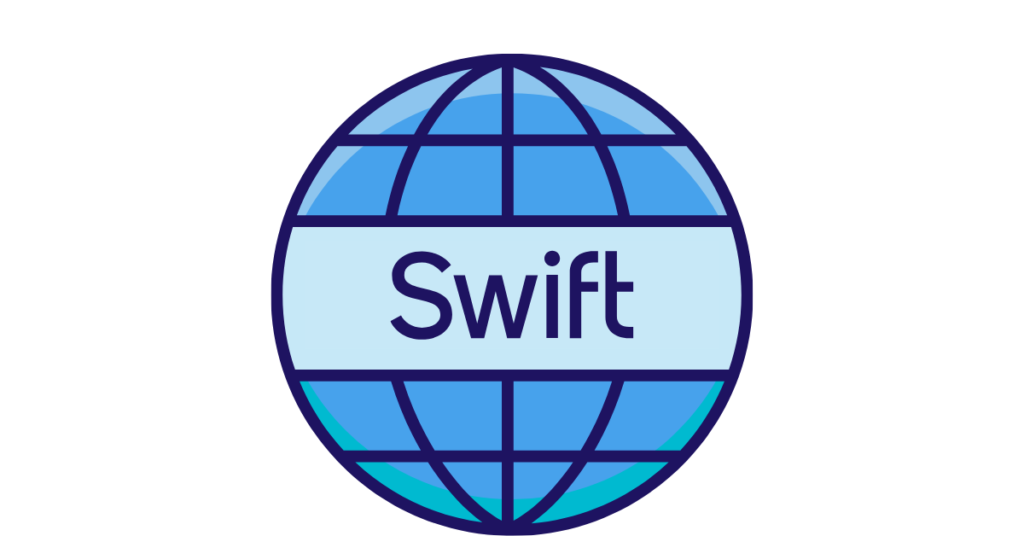Gone are the days of traditional banking and financial practices. In their place, a new era of FinTech (Financial Technology) has emerged, revolutionizing how businesses and financial leaders manage operations and strategize growth.
The landscape in 2024 is a vivid contrast to what it was just a few years ago. A confluence of technology, changing regulations, and consumer behaviour has reshaped the industry. FinTech, once a buzzword, is now an integral part of financial ecosystems worldwide. From AI-driven financial advice to blockchain-powered transactions, these trends are not just reshaping how businesses operate but are also redefining the future of finance.
In this post, we delve into the pivotal FinTech trends of 2024, examining their nature, their impact on financial operations, and when it’s advantageous for companies to adopt them.
1. Artificial Intelligence and Machine Learning: The New Financial Advisors
AI and ML in FinTech involve using intelligent algorithms to automate complex processes, analyze data, and enhance decision-making. The integration of AI and ML into financial systems has brought about unprecedented efficiency and personalization. Financial institutions are now leveraging these technologies to automate operations, tailor services, and make data-driven decisions. AI’s ability to analyze large datasets has enabled more accurate risk assessments and fraud detection, while ML algorithms are continually learning from new data to enhance financial models and strategies. This trend is particularly beneficial for businesses that rely on large-scale data analysis and those looking to offer customized financial services.
Operational Impact: AI and ML are streamlining customer verification, risk assessment, and providing personalized financial advice, leading to cost reduction and improved customer service.
Adoption Opportunity: Businesses dealing with large data sets or seeking to enhance customer experiences should prioritize AI and ML integration.
2. The Blockchain and DeFi Era: A Paradigm Shift in Transactions
Blockchain technology and Decentralized Finance (DeFi) are dismantling the traditional financial infrastructure. By eliminating intermediaries, they offer more transparent, secure, and efficient transaction mechanisms. This technology is particularly impactful for businesses involved in cross-border transactions and those that require transparent and secure record-keeping. As the technology matures, its adoption is becoming increasingly essential for businesses looking to stay ahead in the digital economy.
Operational Impact: DeFi and blockchain are revolutionizing payment processing, asset management, and record-keeping.
Adoption Opportunity: Companies interested in cutting-edge payment solutions or those in industries with high transaction volumes would benefit most.
3. Open Banking: A Gateway to Innovation
Open Banking is revolutionizing the financial industry by enabling secure data sharing between banks and third-party service providers through APIs. This trend empowers consumers with more control over their financial data, fostering innovation and competition among financial service providers.
Operational Impact: Enhances customer service and offers new revenue streams through personalized financial services.
Adoption Opportunity: Ideal for businesses aiming to broaden their service offerings and embrace digital collaboration.
4. Cybersecurity: Safeguarding the Digital Frontier
As financial operations increasingly move online, the importance of cybersecurity and cyber resilience have skyrocketed. Protecting sensitive financial data against cyber threats is now a top priority. This trend is critical for all businesses, irrespective of size, as the repercussions of data breaches are far-reaching. Investing in cybersecurity is no longer optional but a necessity in the digital age.
Operational Impact: Robust cybersecurity measures are vital for safeguarding sensitive financial data and maintaining customer trust.
Adoption Opportunity: Immediate for all businesses, given the critical nature of data security.
5. Digital Banks and Neobanks: Banking Redefined
The rise of digital banks and neobanks marks a significant shift in the banking sector. These institutions offer banking services exclusively through digital platforms, appealing to a tech-savvy customer base and providing cost-effective financial solutions. For businesses targeting a younger demographic or those looking for innovative banking solutions, aligning with digital banks and neobanks is becoming increasingly important.
Operational Impact: These banks are disrupting traditional banking models, offering more accessible and often cheaper services.
Adoption Opportunity: Suitable for tech-savvy customers and businesses looking for innovative banking solutions.
6. Real-Time and A2A Payments: The Speed of Now
The financial world is moving at a breakneck pace, and real-time and Account-to-Account (A2A) payments are at the forefront of this change. These payment methods offer instantaneous transactions, a boon for businesses that require swift cash flow management and transaction processing between accounts. Adopting these payment methods can significantly enhance operational efficiency and customer satisfaction.
Operational Impact: They are transforming how businesses manage cash flow and conduct transactions.
Adoption Opportunity: Businesses with high transaction volumes or those seeking to improve cash flow management should consider this.
7. Mobile Payments: The Ubiquity of Convenience
Mobile payments have become ubiquitous, driven by the widespread adoption of smartphones and the demand for convenient payment options. This trend is not just about convenience; it’s about integrating payment systems into the daily lives of consumers. Businesses that adopt mobile payment solutions can tap into a larger market, offering ease of transactions to their customers.
Operational Impact: They are simplifying the way consumers and businesses transact, increasing efficiency and accessibility.
Adoption Opportunity: Ideal for consumer-focused businesses and those looking to modernize payment methods.
8. Biometric Authentication: Secure and Personal
Biometric authentication is redefining security in financial transactions. Using unique biological characteristics such as fingerprints or facial recognition, this technology offers a secure and user-friendly way to verify identities to access financial services.
Operational Impact: Adds a layer of security to financial transactions and customer interactions.
Adoption Opportunity: Businesses with a digital interface for customer transactions should consider integrating this technology.
9. Embedded Finance and BaaS: Blurring Industry Lines
Embedded Finance and Banking-as-a-Service (BaaS) are breaking down industry barriers, allowing non-financial companies to integrate financial services into their offerings. They represent a significant expansion of the financial services ecosystem.
Operational Impact: Enables companies to offer more holistic solutions, enhancing customer experiences and opening new revenue streams.
Adoption Opportunity: Particularly beneficial for e-commerce platforms and businesses looking to offer integrated financial services.
10. Generative AI: Customization at Its Core
Generative AI is set to transform banking experiences by offering highly personalized and efficient customer services. Its ability to generate new content and insights based on existing data sets makes it a valuable tool for businesses looking to offer customized financial advice and services.
Operational Impact: Enhances customer experience and streamlines financial analysis.
Adoption Opportunity: Beneficial for banks and financial institutions focusing on customer personalization and efficiency.
11. Quantum Computing: The Future of Data Processing
Quantum computing is emerging as a significant trend due to its potential to process vast amounts of data at unprecedented speeds. This technology is particularly beneficial for businesses that require complex data analysis and those looking to stay at the forefront of technological innovation.
Operational Impact: Could revolutionize areas like risk assessment and data encryption.
Adoption Opportunity: Long-term consideration for large financial institutions and tech-centric companies.
12. Green Fintech and ESG Initiatives: Sustainability in Finance
As environmental concerns take centre stage, Green Fintech and ESG initiatives are becoming increasingly important. These trends focus on integrating sustainable practices into financial services, offering a way for businesses to align with global sustainability goals while also tapping into a market that offers a way for businesses to align with global sustainability goals while also tapping into a market that values eco-conscious practices. This trend is vital for companies looking to demonstrate corporate responsibility and sustainability in their operations.
Operational Impact: Enables companies to meet sustainability goals and attract eco-conscious customers.
Adoption Opportunity: Important for all businesses, particularly those in industries with significant environmental impacts.
13. Regulation Technology (RegTech): Navigating the Compliance Maze
RegTech is becoming indispensable in the ever-evolving landscape of financial regulations. These technologies automate compliance, reduce the likelihood of fines, and help detect threats to financial security in real-time. This trend is particularly relevant for institutions that operate in multiple jurisdictions or deal with complex regulatory environments.
Operational Impact: Streamlines compliance processes, and reduces risks and costs.
Adoption Opportunity: Essential for financial institutions and businesses in highly regulated sectors.
14. Digital Identity and Wallet Integration: The Future of Personal Identification
Digital identity solutions are transforming how personal identification is managed in the digital world. The integration of these solutions with digital wallets simplifies customer onboarding and transaction processes, enhancing security and convenience. This trend is significant for businesses looking to streamline user experiences and enhance data security.
Operational Impact: Enhances user experience and security in financial transactions.
Adoption Opportunity: Critical for digital platforms and e-commerce businesses.
15. Strategic Fintech Partnerships: Collaborative Innovation
Collaborations between traditional financial institutions and fintech firms are crucial for bringing innovative solutions to the market quickly. These partnerships allow businesses to leverage each other’s strengths, creating synergies that drive innovation and efficiency.
Operational Impact: Accelerates digital transformation and expands service offerings.
Adoption Opportunity: Ideal for traditional banks and financial services looking to innovate quickly.
16. B2B Fintech Solutions and BNPL for SMEs: Supporting Business Growth
The pivot towards B2B fintech solutions, including BNPL (Buy Now Pay Later) for SMEs, reflects a significant shift in the fintech landscape. These solutions provide critical financing options for SMEs, filling a major market gap and supporting business growth.
Operational Impact: Helps SMEs manage cash flow and access financing.
Adoption Opportunity: Suitable for fintechs focusing on B2B markets and SMEs needing flexible financing options.
17. Gamification in Fintech: Enhancing User Engagement
Incorporating game-like elements in fintech platforms is an emerging trend aimed at improving user engagement and making financial management more interactive and enjoyable.
Operational Impact: This approach is particularly effective in increasing adoption and usage of financial tools.
Adoption Opportunity: Relevant for fintech firms focusing on customer experience and engagement.
18. IoT Integration in Finance: The Network of Everything
The integration of the Internet of Things (IoT) in finance is set to open up new possibilities for service delivery and efficiency. From payment rings to smart appliances, IoT devices are gradually becoming a part of the financial ecosystem, offering innovative ways to manage and conduct transactions.
Operational Impact: Potential for new data-driven products and services.
Adoption Opportunity: Forward-looking for financial institutions interested in next-gen tech integration.
19. Stablecoins and Cryptocurrency Adoption: The New Digital Economy
Despite regulatory hurdles, stablecoins and cryptocurrencies are gradually gaining traction as mainstream payment methods. They offer an alternative to traditional financial systems, especially in cross-border transactions, and are increasingly being accepted in various marketplaces.
Operational Impact: Could revolutionize payments, especially in cross-border contexts.
Adoption Opportunity: High potential for businesses engaged in international trade or looking to innovate in payments.
20. Regulatory Developments in Open Finance
With the introduction of frameworks like the Financial Data Access (FIDA) in the EU, there is a gradual move towards open finance, enabling banks to become more embedded in non-financial customer journeys.
Operational Impact: Allows banks to become more integrated into customer lifestyles.
Adoption Opportunity: Essential for financial institutions focusing on digital transformation and customer experience
21. CBDCs: Central Banks Entering the Digital Age
Central Bank Digital Currencies (CBDCs) represent a new frontier in digital finance. With specific use cases emerging, CBDCs are poised to enter the next phase of growth, potentially transforming how central banks interact with the digital economy.
Operational Impact: Could transform national and international payment systems.
Adoption Opportunity: Important for governments and financial institutions to monitor and potentially integrate
22. Anti-Money Laundering Tools with AI: Smarter Compliance
As the financial landscape becomes more complex, AI-powered Anti-Money Laundering tools are evolving rapidly. They ensure compliance in a landscape where traditional methods may fall short.
Operational Impact: Improves compliance and security for financial institutions.
Adoption Opportunity: Crucial for financial institutions handling diverse transaction volumes and mitigating financial crime risks.
23. Mergers and Acquisitions in FinTech: Consolidating for Strength
The rise in mergers and acquisitions reflects a maturing fintech market. As companies seek to consolidate strengths and expand their offerings, M&A activities are reshaping the fintech landscape, providing opportunities for strategic growth and innovation.
Operational Impact: Leads to more robust and comprehensive fintech solutions.
Adoption Opportunity: Relevant for fintech companies seeking growth or diversification and for traditional firms looking to innovate through acquisition
24. Heightened Regulatory Scrutiny: A Balancing Act
The rapid evolution of fintech has attracted increased regulatory attention. Navigating these changing regulations is becoming crucial for fintech companies, especially those dealing with AI, blockchain, and data privacy.
Operational Impact: Fintech companies must navigate changing regulations concerning data privacy and financial services.
Adoption Opportunity: Immediate for all fintech companies and financial institutions to ensure compliance and avoid penalties.
Embracing Change
The FinTech landscape of 2024 presents an array of trends driven by technological advancements, regulatory changes, and evolving market needs. Financial leaders and business managers should consider these trends not just for their disruptive potential but for the opportunities they present in optimizing financial operations and maintaining a competitive edge in a digital-first world.
The key to success lies in understanding which trends align with your company’s goals and customer needs, and strategically adopting these innovations to enhance your financial operations and services. The transformative power of these trends can lead to more efficient, secure, and customer-centric financial ecosystems, offering substantial benefits to those who embrace them.
Don’t let the complexity of change hold you back!
At Capitalixe, we are ideally positioned to provide you with the expert guidance and strategic planning your business needs to harness the potential of the latest fintech payments and banking solutions.
Book your free consultation today to learn how we can help you embrace change with confidence!









